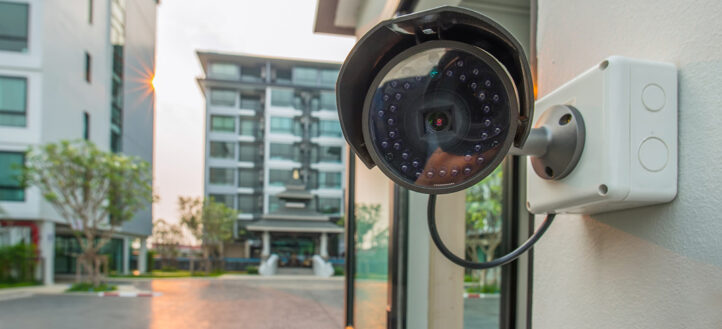Automating rent payments
Property managers and tenants benefit from the right solution

You shift your car into park, turn off the ignition, and grab your keys, coffee, and bag, ready to head to the office. As you unlock the door, you’re greeted by dozens of envelopes and loose checks scattered on the floor. Dropping your bag and setting down your coffee, you start picking up the envelopes and checks, taking them to your desk to begin sorting. It’s the first of the month, and this is your routine.
Sitting at your desk, coffee in hand, you methodically sort through the payments, entering them into your accounting system. You note which tenants paid the correct amount and which didn’t. Among the envelopes, you find one filled with cash, marked only “215,” from a tenant who consistently underpays but always insists the full amount was there. After a few days, you send out notices to those who didn’t pay. The next day, you receive an irate call from the tenant in Unit 1576, claiming they dropped off their check. After a thorough search, you find the check slid under a planter on the opposite side of the lobby.
As you finish the first week of the month, slightly exhausted, you’ve completed the rent collection and reporting, except for a few tenants you need to track down or start the eviction process on. You wonder if there’s an easier way to handle this process and brace yourself to start it all over again in just three weeks.
Automated solutions

James Scott, Real Estate Technology Hub at MIT’s Center for Real Estate
James Scott, IREM Innovator-in-Residence and research scientist with the Real Estate Technology Hub at MIT’s Center for Real Estate, says that several options can help automate the process and make life easier for property managers living this scenario. “There are several proptech companies providing solutions to reduce the number of cash and check payments and digitize those payments,” he says. These companies typically use automated clearing house (ACH) payments, which move money directly from a checking account or allow for credit card processing, eliminating the need for cash or checks by making transactions digital.
“This is precisely what Zego Pay offers to property and HOA managers,” says Mark Peters, president and general manager of Zego. “Considering fees and labor, processing checks and cash payments can cost from $3 to $10 per payment.”
According to SatisFacts’ “Biennial Online Renter Study,” online rent payments are the most requested tech feature that residents find useful. Property management companies often offer online payment options but charge a fee for using this service, passing those costs to the residents. Zego’s 2024 “The Rent Payment Trends Report” shows that properties absorbing the costs of ACH transactions saw 84.71% of residents opt-in, while those passing the fees along saw only 47% participation.
Peters says, “Absorbing the ACH fees pays for itself when considering the time, labor, and inevitable mistakes in manually processing payments.”
Getting buy-in for change
When implementing new technology, both Scott and Peters emphasize the importance of solid change management. “Most people reaching out for services like Zego Pay are in more senior positions, focusing on strategic goals,” Peters explains. “It’s also crucial to have buy-in from those who will use the tool regularly and from the residents.”
Scott adds: “Real estate professionals are not good with failure or mistakes, especially with proptech solutions. This need for solutions to work perfectly can make adoption in the real estate industry challenging for many proptech companies. Other industries allow for some mistakes that can be fixed in the next version, but real estate doesn’t have those same tolerances.”
Scott also points out the importance of understanding your organization’s culture and how best to implement technology solutions. “You have to cut your cloth to fit your need. Not all solutions are meant for every organization. Some may only want to digitize rental payments, while others may want full integration into their accounting software or a one-stop shop for all property management activities. At the end of the day, you need to find a solution that fits your organization’s needs and budget.”
Rent and better credit scores
Discussing integrations, Peters notes some interest in reporting rental payments to credit bureaus. “We’ve seen some residents experience 50-point increases in their credit scores by reporting their rental payments.”

George Sacco, Foxen
In an IREM webinar titled “Financially Empowering Residents Through Rent Reporting,” George Sacco, head of marketing for Foxen, notes that rent payments could equal 30%–50% of a renter’s income. Renters typically have a credit score of 638, deemed “fair” by credit bureaus. Reporting rental payments can help build credit scores, enabling residents to qualify for home loans. With housing affordability being a persistent issue, increased reporting of positive rental payments not only helps raise credit scores but also positions renters more favorably with lenders, potentially lowering interest rates.
Sacco’s presentation highlights API integrations as the most effective, accurate, and beneficial approach to reporting rent payments to credit bureaus. Knowing these payments are reported motivates residents to make them timely. (To learn more, check out IREM’s blog: “Rent reporting: A leading amenity differentiator.”)
Integrating simplified online rental payment solutions and rent reporting can lead to more timely and complete payments, reducing the workload for on-site property management teams and increasing community satisfaction.
Digital currencies and rent
As the discussion around new and improved payment structures continues, the next logical step is to explore the potential of digital currencies for future integration. While surveying companies accepting or planning to accept digital currencies, no clear leaders emerged.
“Zego is using some integrations from PayPal to help convert digital currency into U.S. dollars for payments,” says Peters. “But this change needs to come from the residents, and we’re not seeing widespread adoption yet.”

Jason Hagenow, CPM®
One property manager using digital currency is Jason Hagenow, CPM®. Hagenow encourages his tenants to pay rent through digital currency. “Our tenants can pay rent directly from their digital wallets. We focus on Bitcoin, as it’s the most widely accepted digital currency with the most consistent pricing.”
Hagenow offers tenants a deal: “If a tenant pays in Bitcoin, we give them rent credits for value increases. For example, if rent is $1,000 and the payment in Bitcoin appreciates to $1,200 by the next month, we split the $200 increase, giving the tenant a $100 credit for the following month.
“We could address affordability issues if HUD programs adopted such changes,” Hagenow continues. “Imagine a tenant paying in Bitcoin whose value increases over time. If HUD credited residents based on this appreciation, they could amass significant down payments for home purchases, making homeownership more accessible.”
“Right now, digital currencies are not mainstream, but they are getting there,” Hagenow says. “As they become more stable, we will see more adoption. Just look at the ways payments have shifted in the past. Everything was cash, then moved to checks and then to electronic transfers. Even though electronic transfers have been around for a long time, we are still driving out to pick up checks from some tenants despite them being able to do their transaction digitally or even mail the check.”
Changing generational norms and getting used to new technologies will be where the adoption of alternative payment methods will gain traction, just like any other technological change.
Scott emphasizes this idea: “Changes must come from the consumer and the end users. Many proptech companies will think of amazing technologies and ways to revolutionize the way the industry works, but if the industry doesn’t demand or want those solutions, then the solution really isn’t a solution for right now.”
Some of these solutions, while excellent, need education for the end user and consumer to help them understand that they’re not alone and there are better ways to complete certain tasks.
Property managers who implement solutions like those discussed in this article may find themselves walking into their office at the beginning of the month surprised to see no checks scattered on the floor. While enjoying their cup of coffee on the first of the month, they’ll look at their accounting system and pull a report to see who has paid and who hasn’t. No counting cash, organizing checks, and driving it all to the bank to deposit. The property manager will have all current payment information, allowing them to focus on the property’s operations and maintenance, resident satisfaction, and the other things they need to do to meet the owner’s goals for their investment.
A completely digital rent collection system may seem like a dream to some property managers, but for many, it’s already a reality, reducing one of the more painstaking and potentially confrontational aspects of their duties to something that can be done with a few clicks of a mouse.
Similar Posts
Features
Preventing crime in multifamily housing
Proven strategies to reduce risk, improve security, and protect residents




